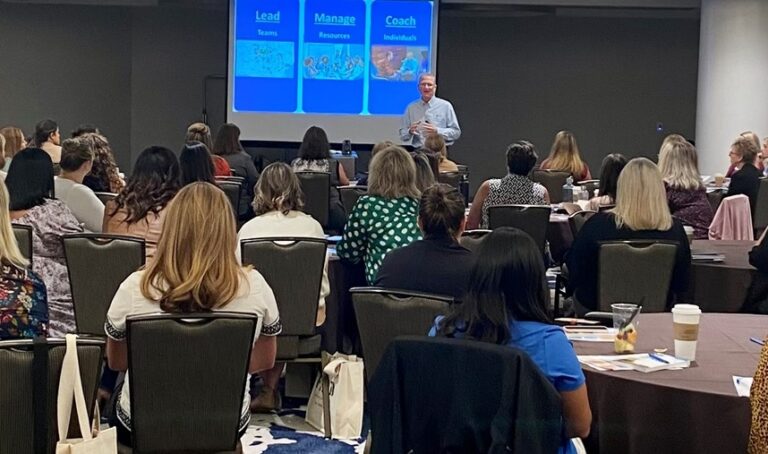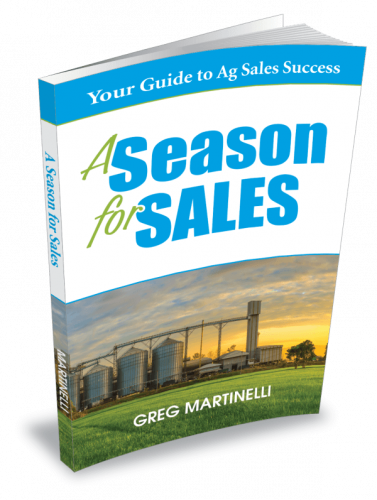“I have no problem selling, I just struggle with making cold calls”
“How do I start the conversation?”
“I know the customer doesn’t want to see another salesperson stopping”
If these sound like you or your sales team, then you are in the right place. I hear these statements in some form with every sales team I work with. And it’s not just from a few. It’s typically the #1 weak area for most sales teams.
The dreaded fear of driving up to a farm and talking to a complete stranger is enough to make most salespeople just keep driving right past that farm. They will think of any excuse not to stop and call on that farm
To help them, we have to break down the fear that our reluctant salesperson has towards prospecting. Because we know the solution can’t be to just not prospect anymore. Or, to wait for the phone to ring. Their struggle has several parts to it.
First, they struggle with appearing pushy, salesy, or annoying. The reluctant salesperson just knows the farmer is not wanting to have a salesperson call on them. In some extreme cases, salespeople will tell me that it feels like door to door selling.
This is actually a legitimate fear. Think about your own experience with someone who knocks on your front door while you are watching TV.
Keep in mind that nobody in business wakes up in the morning and says,
“Boy, I sure hope more salespeople call on me today! Maybe they will put me in their funnel.”
Nobody, none, not one person thinks that. So, get over it. They are in business to serve their customers and you are a vendor. You are a means to their end of serving their customers. It is really freeing once you realize that your prospect doesn’t even want to see the salespeople they buy from. They only want a vendor on their farm to solve problems and help them achieve outcomes (see last week’s blog/podcast: Customers Buy Outcomes ).
Reframe your mind to think of yourself as diagnosing problems versus pushing a product. Think of yourself as helping them on their buyer’s journey versus your prospect funnel.
Secondly, our reluctant salesperson will struggle with what to say or ask about. They might be very good at the initial step of the meet and greet. However, they struggle to steer the conversation from the initial discussion about introductions over to their selling process.
Conversation starters usually go something like….
“How are you? I’m Greg with ABC Ag Suppliers. I saw you out here and thought I would stop by to introduce myself. Looks like you have been a little dry out here as well”
Ten to fifteen minutes go by as you discuss dry years and wet years and who got rain yesterday and who didn’t. You both will try to uncover common people in the community that you know. You might even get bold enough at some point to tell them about your latest promotion or your best-selling product that everyone is having great success with.
He says he will look at the information later but needs to get back to work. You thank him for his time and remind him that your discount promotion is only good for 24 more hours. He says he’ll let you know. You drive off thinking you made a good connection and can now get back to working with current customers.
There’s nothing really wrong with what you just did. I have done many of these same types of sales calls myself. The struggle is that it’s slow. Or at least slower than what it could be. Think about it. You have no idea whether or not your prospect is even considering buying from you. There were no discovery-style questions. All you know is he’s a farmer and plants corn. So, he could buy and plant your seed corn brand.
To get into the discovery phase of selling, you need to have some methods that work even when you are nervous or you have a reluctant or quiet prospect. The sales call can become very awkward when the prospect is either too shy to talk or wants to get rid of you.
The best way to get the conversation off of the weather and onto selling is to ask about their history. The history of how long they have been in business or farming in this location. Most people are proud to tell you how long they have been farming. It’s usually in a number of generations. Ever hear, “I’m a third-generation farmer”?
From there, listen as they tell you about land acquisitions and family history. Work into the conversation about history with their current supplier of the products you sell. “Have you used XYZ Ag for all your inputs then over the years?” You included the word “All”. For certain DISC profiles, they will never let that go if it’s not completely true.
Key point: If they recently switched to this supplier, then where were they before that, and what caused them to switch? If your prospect has been with their current supplier for a long time, then ask about what it is that kept them so loyal to this one supplier.
Once you feel the conversation about their history is starting to taper off, then ask about their history with your company and your products.
This series of questions should begin to uncover some opinions, biases, farming structure, who makes decisions and how, etc.
More importantly, it helps you uncover the potential need for your products
Most importantly, it gives you the confidence to diagnose a need and recommend a solution. This allows you to follow up faster as you now have a reason to call on them again.


